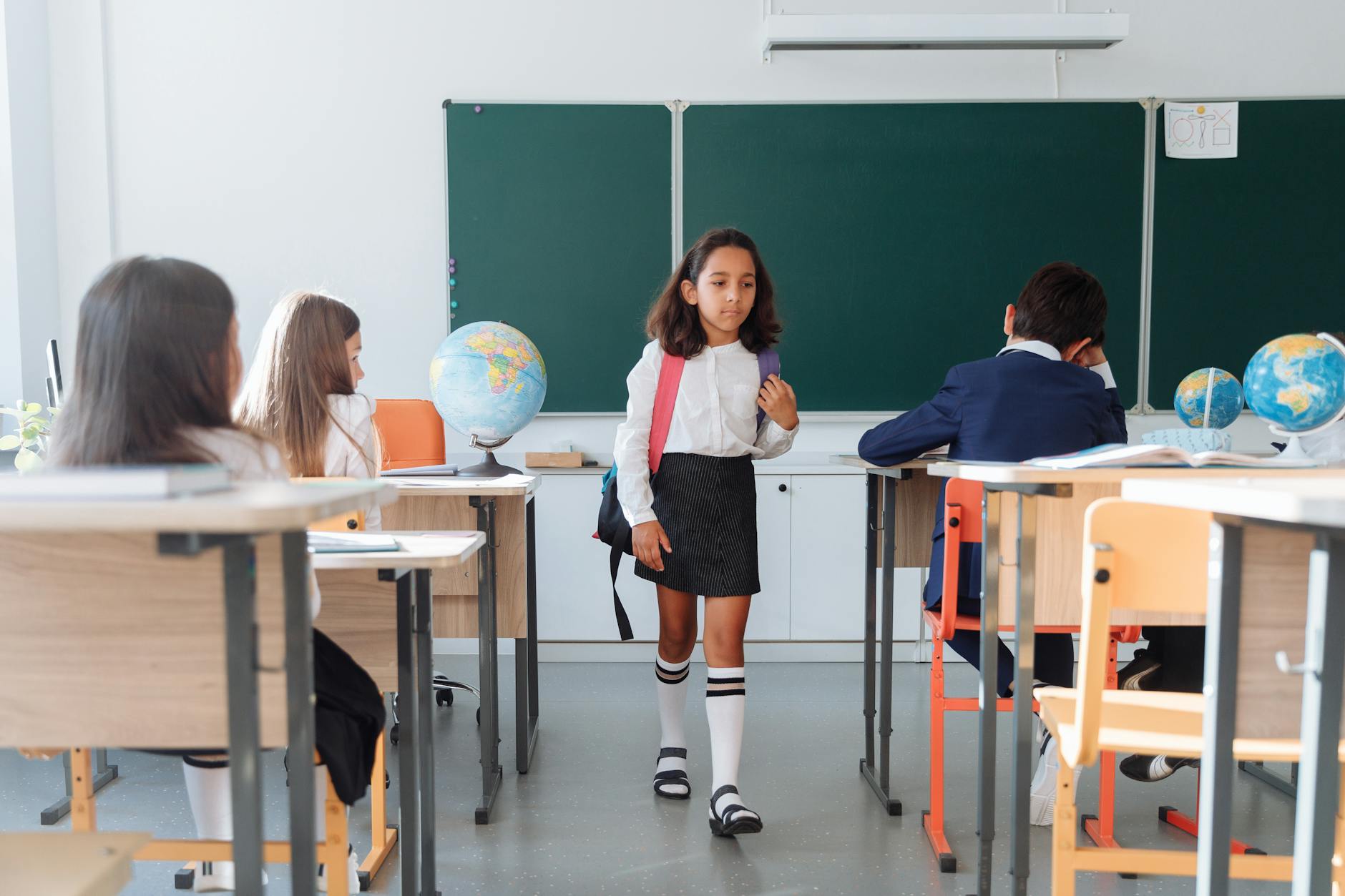Why Virtual Craft Classes are Transforming Culinary Arts in the United States

Innovations in Culinary Education
Emerging Virtual Classroom Tools
Incorporating virtual craft classes into culinary education is an exciting leap forward. Imagine bringing the vibrant energy of the Chelsea Market directly into your home. Through advanced digital platforms, you can explore various cooking techniques from a myriad of cultures. Interactive tools, like live streaming and real-time feedback, turn virtual classes into dynamic experiences that capture the essence of in-person teaching. These innovations help educators like Lucas Hernandez empower students to master culinary skills while fostering creativity and cultural appreciation.
Interactive Learning Platforms
To keep culinary students engaged, powerful virtual team building activities can transform learning. By integrating collaborative projects such as virtual cooking competitions or team-based culinary challenges, students can connect with their peers and share diverse culinary techniques. This interaction not only fuels a sense of community but also helps transmit culinary heritage into the virtual space. Platforms allowing for shared experiences and creativity enhance traditional teaching methods by offering fresh avenues for learning.
Enhancing Student Engagement
Virtual classes are an arena for immense creativity and innovation. When designed thoughtfully, they can inspire students to explore new flavours and techniques. Incorporating storytelling and cultural anecdotes, reminiscent of bustling cooking classes at the Institute of Culinary Education, can captivate learners and encourage experimentation. With the right strategies, educators can bring a personal touch to each virtual session, ensuring students are not just learning but also experiencing the joy of culinary arts.
Blending Tradition with Innovation
As a Culinary Arts Professor, I've often reflected on how the vibrant culinary landscape can seamlessly intertwine tradition with modern innovation, particularly through virtual platforms. Incorporating diverse elements into culinary education isn't limited to just spices and flavors—it's also about introducing new forms of artistic expression that aid in understanding food history and culture. Here in New York City, where boundary-breaking culinary events at Chelsea Market occur regularly, such blending naturally lends itself to the transformative power of creative arts, like pottery classes nyc and virtual paint classes.
Preserving Culinary Heritage
Preserving the authenticity of culinary traditions while embracing new ways to teach these skills is crucial. Tech-based platforms can enhance our ability to reach wider audiences. For instance, interweaving pottery or painting with culinary classes helps students appreciate the aesthetics of presentation, often integral to cultural dishes. Exploring these artisanship crafts adds depth and context to the ways we present and celebrate cuisine—from traditional terracotta cooking vessels to hand-painted presentation plates.
Bridging Cultural Experiences
The parallels between different art forms provide an immersive cultural bridge. Virtual paint classes, for example, can reflect on the artistic flair in food plating by diving into cultural historical art influences, much like how cooking classes at the Institute of Culinary Education open new doors to cross-cultural understanding. This exposure doesn’t just preserve heritage—it deepens the learning experience by showing how history and modernity can coexist, inspiring budding chefs to innovate creatively.
Incorporating Modern Trends
Incorporating modern trends in both the culinary and creative arts arenas leads to a more comprehensive educational experience. As traditional teaching methods blend with technology-driven platforms, culinary students can explore concepts beyond the kitchen, leading to a holistic understanding of food and its cultural significance that transcends traditional boundaries.
Overcoming Virtual Challenges
Maintaining Hands-On Engagement
Navigating the task of keeping students engaged in a virtual setting may seem daunting, but with creativity and the right tools, it can be achieved. Consider incorporating real-time demonstrations, which allow students to follow along at home, transforming their kitchens into dynamic learning environments. You might also suggest engaging activities like cooking classes San Francisco, where students can virtually participate and gain hands-on experience in their own space.
Adapting to Diverse Learning Styles
To address the varying learning styles of your students, consider offering a mix of instructional methods. Visual learners will benefit from video demonstrations and virtual reality experiences, while auditory learners might prefer detailed narrations and class discussions. Interactive sessions, where tasks are broken down into manageable steps, can cater to kinesthetic learners. Bringing in experiences like pottery class San Francisco can similarly offer a tactile learning component virtually.
Techniques for Virtual Instruction
When it comes to techniques for effective virtual instruction, clarity and preparation are keys. Start by clearly structuring your lessons with a concise introduction, followed by interactive elements that facilitate participation. Emphasize the importance of feedback throughout, ensuring that students feel seen and motivated. You might recall the enriching interactions from culinary events at Chelsea Market, integrating similar interactive approaches into your virtual classes for heightened student engagement. These methods, tailored to online platforms, can transform the virtual landscape of culinary education into an immersive and productive experience.
Best Practices for Virtual Classes
Structuring Effective Lessons
Creating structured and effective lessons is essential for capturing the interest of culinary students, especially in a virtual environment. Crafting targeted lesson plans that incorporate a mix of demonstration and hands-on activities can help. Educators can start with a clear outline that includes introduction, demonstration, and interactive segments. Each segment should have precise time allocations to maintain engagement throughout the session. Introducing a unique element, such as a paint and sip nyc-style session, can add vibrancy and break the monotony of traditional culinary lectures.
Utilizing Multimedia Resources
Incorporating diverse multimedia resources can significantly enhance the learning experience for students. Videos, interactive slideshows, and virtual tours of famous culinary landmarks can bring a touch of realism and excitement to the virtual classroom. High-quality visuals of food preparations, sourced from renowned cooking classes at the Institute of Culinary Education, can provide students with the realistic experience they crave. Such tools assist in illustrating complex concepts more effectively, providing clarity and fostering a deeper understanding.
Encouraging Student Interaction
Fostering student interaction is crucial for a dynamic and engaging learning environment. Encourage students to participate through live discussions, Q&A sessions, and collaborative projects that replicate group work found in physical classrooms. Platforms like video conferencing allow for real-time feedback and interaction, which can be supplemented by fun culinary quizzes or group challenges. Regularly scheduled feedback sessions likewise promote a sense of community and keep students committed to the course progress.
Crafting a New Path in Culinary Arts
Tailored Culinary Journeys
As we delve into the virtual landscape of culinary arts, personalizing learning experiences becomes paramount. Every aspiring chef brings a unique palate, much like the diverse array of stalls at Chelsea Market, where innovation meets history foods that are low carb diets. In this digital era, educators can curate bespoke learning paths, akin to tailoring a food tour in Greenwich Village; each turn offers a new flavor and story.
Inspiring Culinary Innovation
Encouraging creativity among students is not just about replicating recipes but about sparking inspiration that leads to novel culinary masterpieces. This echoes the dynamic energy of a class at the Institute of Culinary Education, where traditional techniques marry modern trends. By offering virtual challenges and themed projects, students can experiment beyond geographical confines, transforming a simple ingredient into a culinary sensation. Whether it's perfecting a New York-style cheesecake or reinventing classic pasta dishes, fostering experimentation leads to vibrant, delicious innovation.
Nurturing Tomorrow's Chefs
Developing future culinary leaders involves more than imparting cooking skills; it's about nurturing a deep understanding of gastronomy's cultural and historical roots. Aspiring chefs can engage with mentors who share insights from their own culinary journeys, enriching their learning much like a seasoned guide enriches a food tour. This digital mentorship cultivates a new generation of chefs ready to lead, innovate, and inspire. With virtual platforms enhancing this guidance, we're witnessing the birth of a culinary era where creativity, skill, and diversity intertwine seamlessly for a brighter gastronomic future.


